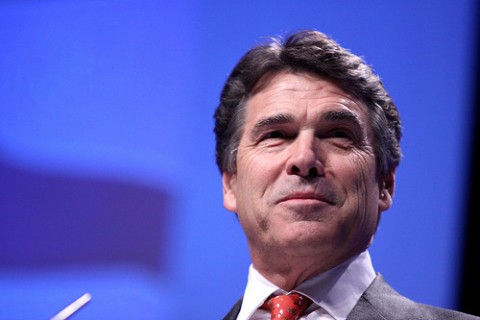More of the same?

Much of the backlash against
critics of Governor Rick Perry's religious beliefs has focused on the idea that
the charges are essentially "more of the same": more of the same secularist
paranoia about religion in public life, more of the same elitist disdain for
the "evangelical vote," more of the same fear-mongering over tangential
connections to Christian theocrats.
But these dismissals are
themselves more of the same: the same ignorance of the influence of Pentecostal
and charismatic movements on American Christianity. According to one leading
critic of Perry's views--researcher and writer Rachel Tabachnik, who spoke
to Terry Gross last week--the New Apostolic Reformation movement is not
simply the same old thing with a new name:
[The NAR] is quite radically different than the evangelicalism
of my youth. The things that we've been talking about are not representative of
evangelicalism. They're not representative of conservative evangelicalism. . .
This is a movement that's growing in popularity, and one of the ways they've
been able to do that [is that]...they're just presented as nondenominational or
just Christian--but it is an identifiable movement now with an identifiable
ideology."
It's a
troubling ideology. The NAR's utopian
vision is, as Tabachnik summarizes it,
to see like-minded Christians "take control over government, arts and entertainment, media,
education, business, family, and religion" to prepare for the end times.
This raises serious questions for people of good will, whatever their religious
beliefs.
As for
Governor Perry, it's not just that he has some sort of distant, shadowy
connection to the NAR that's of concern to northeast liberals. Perry has gone
out of his way to identify his public expressions of religion with the NAR. His
recent prayer rally was patterned after NAR themes, endorsed by NAR "apostles"
and promoted by NAR personnel. As Tabachnik puts it:
A who's who of New Apostolic leaders graced the stage at Perry's
[prayer rally]. Some of the crowd obviously recognized them. Young people in
the audience could be seen bobbing from the waist, up and down, like Apostle
Lou Engle has done for years, mimicking a movement from Jewish prayer.
Perry's
prayer rally was patterned after Lou Engle's The Call.
When Perry came out to speak and pray,
he hugged and thanked Alice Patterson and then had her stand by his side
throughout his appearance. Patterson is an NAR apostle known for claiming
to learn from a vision that the Democratic Party is "an invisible network of evil comprising an unholy structure" (emphasis in
original) that was released by the spirit of Jezebel. (Lest you think she is a
purely partisan visionary, Patterson also reports another vision showing that
the Republican Party is under the spiritual control of Ahab.)
Ross Douthat and others are right to point out that
the media is for the most part ignorant about religion. But the consequence of
that ignorance isn't that some people are calling attention to Perry's beliefs.
It's that his relationship with the NAR continues to fly under the national
media's radar. The initial national coverage of Perry's prayer rally was
nondescript and said nothing about the NAR's participation or Patterson's
unique beliefs. Until Trabachnik appeared on Gross's show, few Americans knew about
Perry's coreligionists--a lack of knowledge shared by those now quick to assure
us that his faith is just more of the same.




